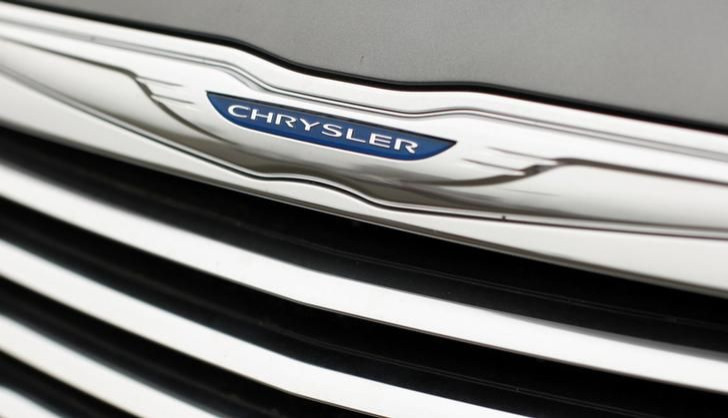Chrysler Files IPO As UAW Trust Pressures Fiat

Chrysler Group LLC on Monday made a government filing that could lead to an initial public offering of stock of up to $100 million.
The move could delay Fiat SpA's (MI:FIA) efforts to take full ownership of the U.S. automaker while enhancing the value of the stake held by a union trust fund, Reuters reports.
Chrysler said in the filing that the number of shares to be sold and a price range haven't been set. JPMorgan Chase is listed as the lead adviser.
All the shares to be sold would come from the 41.5 percent stake in Chrysler held by a United Auto Workers retirement trust, the filing says. The remaining 58.5 percent of the company is owned by Fiat, which got control of Chrysler in the 2009 government-sponsored bankruptcy reorganization.
The trust has said it wants to cash out so it can pay health benefits for the about 60,000 people it covers and to diversify.
The filing says, "We do not intend to pay any dividends in the foreseeable future."
If the Securities and Exchange Commission approves the registration, which could take several months, and a sale of shares takes place -- which isn't guaranteed -- it would be the first time since 1998 that all three Detroit automakers are publicly traded, USA Today notes. Chrysler was bought by Germany's Daimler-Benz in 1998, then sold to private investment group Cerberus Capital.
Fiat and Chrysler CEO Sergio Marchionne has said he wants to buy the stake that the UAW Retiree Medical Benefits Trust got in the bankruptcy reorganization and merge the two companies into a single public company. But Marchionne has been unable to strike a deal and prevent the UAW trust from exercising its right to force Chrysler to go public.
In its S-1 filing with the U.S. Securities and Exchange Commission, Chrysler said an IPO may "prevent or delay" Marchionne's aims, which has caused Fiat -- which owns 58.5 percent -- to rethink the benefits of its alliance with Chrysler.
"Fiat has informed us that it is reconsidering the benefits and costs of further expanding its relationship with us and the terms on which Fiat would continue the sharing of technology, vehicle architectures and platforms, distribution networks, production facilities and engineering and management resources," Chrysler said in the filing.
The two sides have been unable to agree on a price. It is the UAW trust that forced the issue, using a provision of the bankruptcy agreement that allows it to require registration for an IPO.
This can be seen as a negotiating tool. If Fiat wants all of Chrysler badly enough, it might boost its offer for the UAW trust's stake to avoid the sale of shares to the public, which would make it very difficult for Fiat to achieve the goal of 100 percent ownership of Chrysler.
"Fiat is saying that Chrysler is worth less if we don't get that full integration. It's a shot across the bow of the UAW," Richard Hilgert, analyst with investment research firm Morningstar, told Reuters.
Chrysler would have to pay for the IPO -- lawyers, advisers and others -- but all the proceeds of share sales, according to the filing, would go to the UAW trust. That gives Fiat more motivation to avoid a public offering.
There also is a risk for the trust. The market, in the IPO process, might value the shares at less than the UAW trust expects. That would give Fiat a chance to renew its offer at what would seem a more favorable price for the buyer.
"The Chrysler IPO is a textbook example of the difficulties that can occur when debt is converted into an ownership stake, as it was during Chrysler’s bankruptcy, especially when that the ownership stake is held by an interested party, in this case the United Auto Workers’ health care trust,” said Jack Nerad, executive editorial director and market analyst at Kelley Blue Book, the automotive researcher.
“The trust is looking for a windfall based on the current expected value of a public-traded Chrysler, but the move may actually harm Chrysler’s future and by extension harm current Chrysler workers. The IPO could well be a stumbling block in the consolidation of Chrysler within a global Fiat operation, and current Chrysler workers might be better served if such a consolidation takes place. What is certain is that in the current market Chrysler would appear to have strong value if it were to go public.”
Nerad sees the combining of Fiat and Chrysler as a benefit to both automakers and to their current employees, while an IPO, in his view, could be a lose-lose situation for them.
While Marchionne has said he wants to merge the two companies, he has, over the months, declined to discuss some nuts-and-bolts details, such as where the merged company would have its headquarters — the U.S. or Italy? He has said, however, that the merged public company would trade in the U.S.
The companies and the trust haven't disclosed the specifics of their negotiations, although reports have put their valuations of Chrysler for purposes of setting a share price as far apart as $4 billion to $15 billion. The IPO process would allow the market to set a share price range.
As it stands, Fiat, under the bankruptcy agreement and outside of any IPO, has options to buy three more 3.3 percent stakes in Chrysler from the trust. When the two couldn't agree on a price for the first portion, Fiat sued the UAW trust in Delaware Chancery Court. A judge this summer, however, declined to set a price, ruling that it should be settled in a trial. It could be 2015 before such a trial would begin -- longer than Fiat's timetable for taking over all of Chrysler and longer than the trust wants to wait for cash.
© Copyright IBTimes 2024. All rights reserved.





















